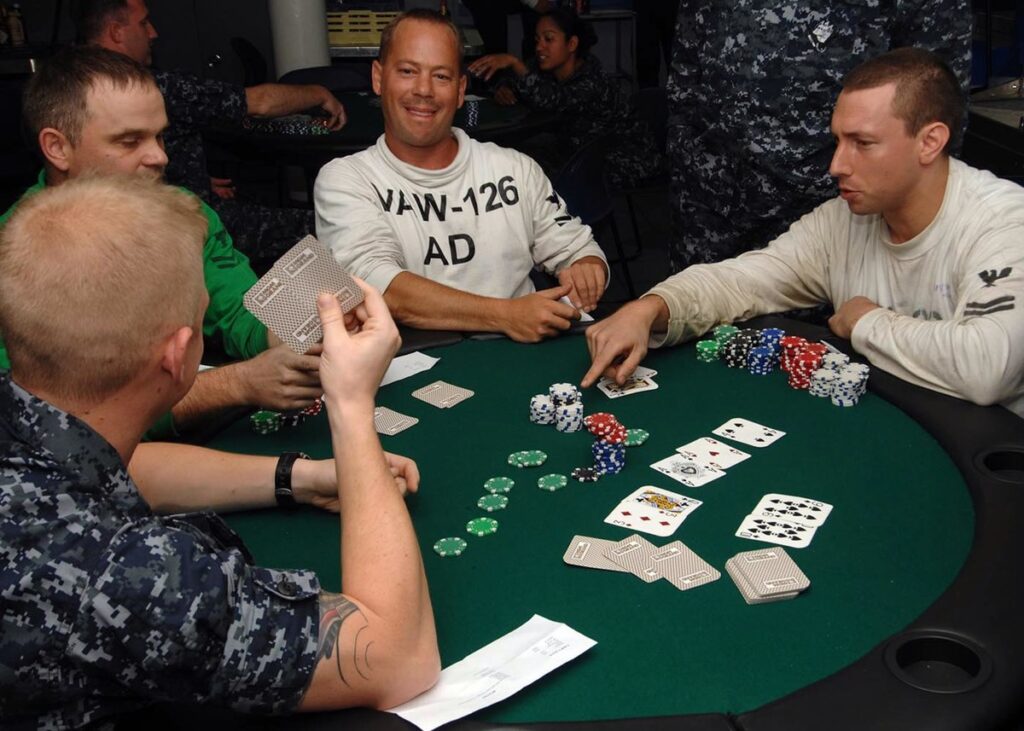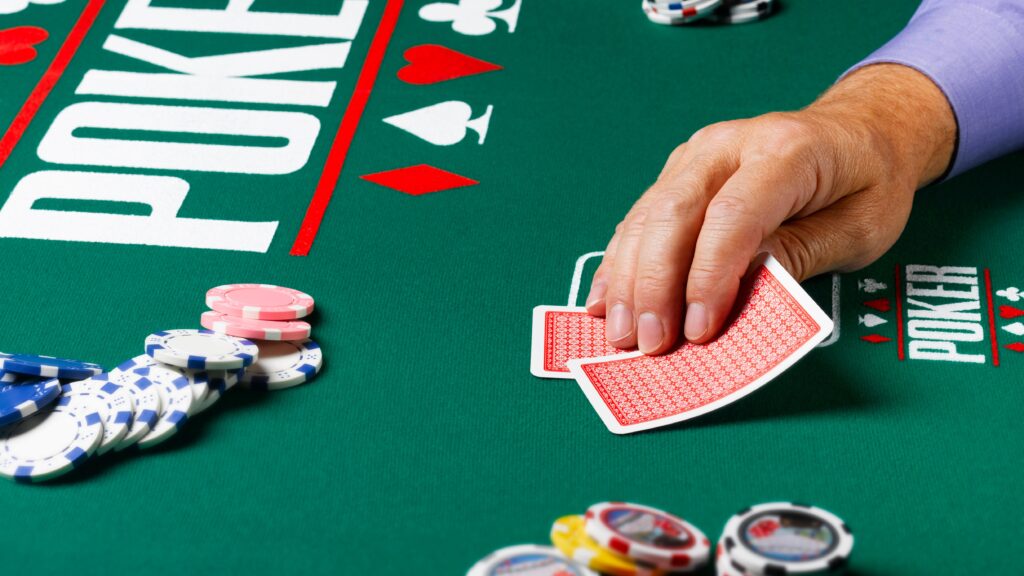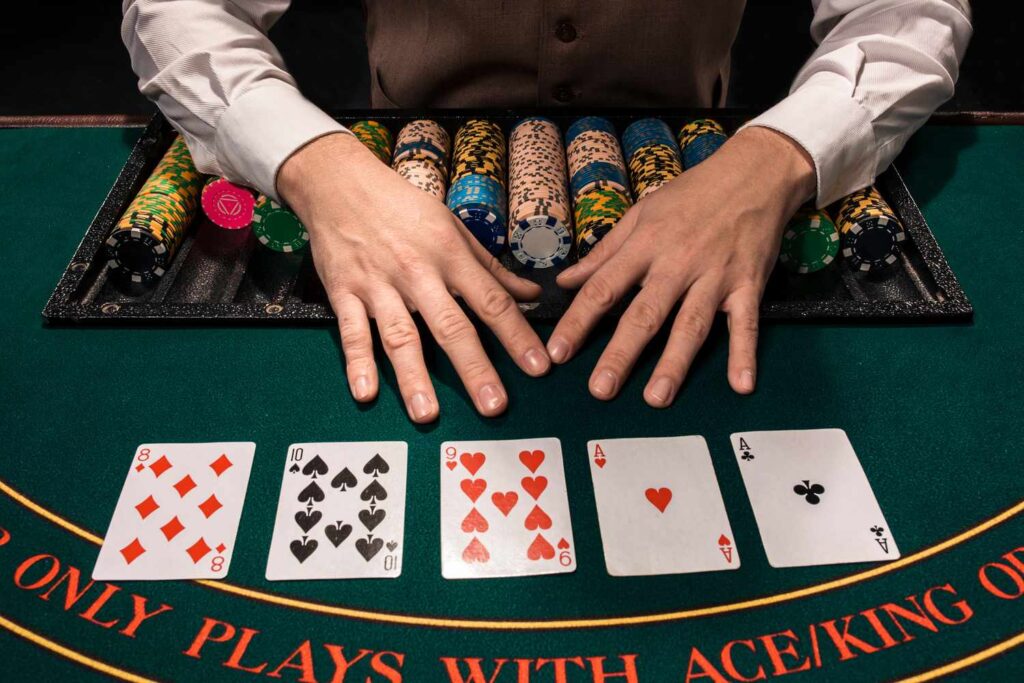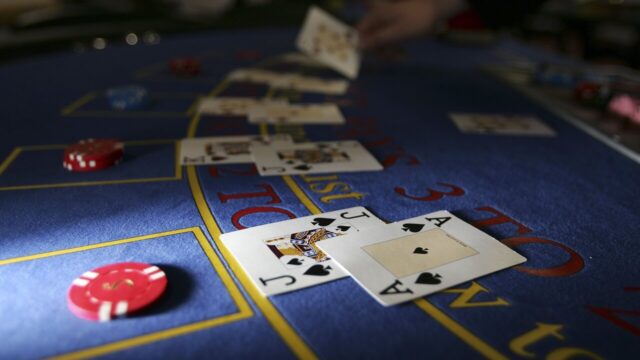In the heart of casinos, amidst the whirring slots and the clatter of roulette wheels, emerges a game unlike any other – poker. It transcends mere gambling to become a crucible of strategy, psychology, and a certain brand of calculated risk.
While luck still plays a hand, poker stands apart due to several unique attributes. Here we will explore the fascinating history of modern poker, as well as the various facets that make this one of the most unique games that the casino world has ever known.
A Brief History of Poker
The roots of poker twist and wind, tracing back centuries and spanning continents. While its precise origins remain somewhat hazy, the game is a fascinating patchwork of influences.
Early hints emerge in Persian games like ‘As Nas’, relying on hand hierarchies similar to contemporary poker. French settlers brought the game ‘Poque’ to New Orleans in the 1800s, a direct forerunner featuring betting and bluffing.
However, poker’s rise truly began alongside America’s westward expansion. It spread on riverboats along the Mississippi, a staple pastime for travelers and pioneers alike. During the Civil War, it solidified its place in American culture, with soldiers whiling away hours around shared card games. In this dynamic setting, new elements entered the fray – draw poker was born, increasing strategic depth by allowing players to exchange cards.
Around the late 19th century, stud poker became popular, bringing the concept of exposed ‘upcards’ into play. These variations enriched the existing repertoire of players, furthering the evolution of strategy.
In the early 20th century, Texas Hold ’em – now the global king of poker – quietly appeared on the scene. Its simple ruleset masked a wealth of strategic complexity, ultimately propelling it to international stardom.
The advent of televised poker tournaments and the online boom of the early 2000s saw poker enter the mainstream spotlight. Suddenly, this game of wits and deception was thrust into living rooms and onto computer screens worldwide. This explosion of accessibility sparked a renewed interest and solidified poker’s place as a cultural phenomenon – a vibrant blend of history, competition, and the pursuit of calculated audacity.
Poker isn’t Just Player vs. House

Most casino games pit you against the house, your wins and losses hinging on predetermined odds built into the game itself. Poker breaks this mold by introducing a human element into the equation.
Instead of playing against a systematized ‘edge’, you lock horns with other players at the table. Success isn’t simply beating the poker dealer, it’s outsmarting, outmaneuvering, and ultimately outplaying your opponents.
This shift in focus transforms the very premise of winning. Victory isn’t just granted by good cards; it’s earned through deciphering your opponents, exploiting their weaknesses, and masking your own. Skill and adaptability come to the forefront as poker transforms into a cerebral battleground.
The Power of the Unknown
Unlike games such as blackjack, where you have partial knowledge of the cards in play, poker thrives on uncertainty. You know your own cards, but the hands of your opponents and the unseen community cards create a dense fog of strategy.
This incomplete information becomes your greatest tool – and challenge. Each decision must be calculated based on probabilities, pot odds, and your assessment of your opponents’ ranges of possible hands. The ability to navigate this ambiguity, to bluff effectively or discern concealed strength, often marks the divide between winner and loser.
Control and Decision-Making

While many casino titles leave you largely at the whim of fate, poker grants a thrilling degree of agency. From every check and raise to calculated fold, you dictate the flow of the game.
There’s no programmed path to follow; each hand is a blank canvas for your cunning. It’s also vitally important to only play at reputable and fair casinos such as Grand Eagle to give yourself the very best chance of finding long-term success.
Poker embraces the complexity of risk management. Players can fold weak hands, preserve their chips, or risk a significant bet based on their perceived advantage. This constant assessment of risk versus reward sharpens decision-making skills and rewards the meticulous gambler.
The Emotional Element
Beyond the mathematics and card probabilities lies the complex layer of human psychology. In poker, your demeanor is a weapon both used against you and wielded by you. The iconic ‘poker face’ symbolizes the need to mask tells (physical or behavioral cues) that can leak information about your hand strength.
It takes many years of practice to learn how to read other players, and even more practice to be able to anticipate what others are going to do. But it’s a powerful skill once mastered, and one of the reasons that poker pros are so good at what they do.
Simultaneously, you’re actively engaged in reading your opponents. A momentary hesitation, a subtle flash of anxiety, a flicker of overconfidence – all these micro-expressions offer valuable clues into your adversaries’ potential strategies. The poker table becomes a stage for both acting and observation, heightening the drama of each hand.
The Appeal of Variability

The sheer number of combinations in a standard 52-card deck is mind-boggling. Unlike games with limited permutations, poker rarely yields identical situations. This continuous element of surprise keeps the game fresh, forcing players to adapt rather than fall into familiar patterns.
It rewards not just rote memorization of odds but a flexible approach to unforeseen circumstances. For many, this is endlessly appealing, as it means that nothing is ever truly fixed and that no two games are ever going to be the same.
Final Thoughts
Despite its strategic depth, poker doesn’t discard the thrill of chance. That adrenaline rush when you hit the perfect card on the river, the joy of successfully executing a complex bluff. these moments still fuel the excitement at the heart of the game.
Poker masterfully blends luck and skill into a compelling dance, enticing gamblers and strategic minds alike. While there are plenty of other casino games available to play, none of them offer quite the same amount of excitement as poker.
If you yearn for an experience that challenges your intellect, rewards courage, and cultivates strategic cunning, then look no further than the world of poker.



